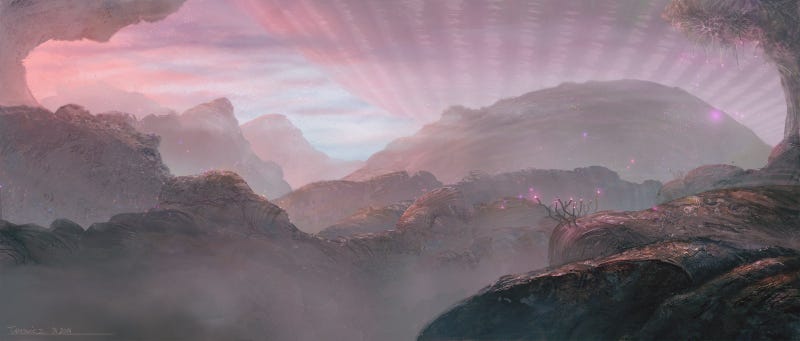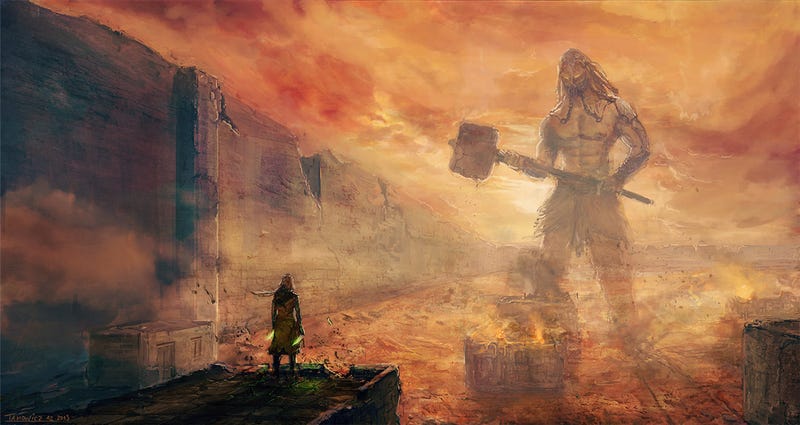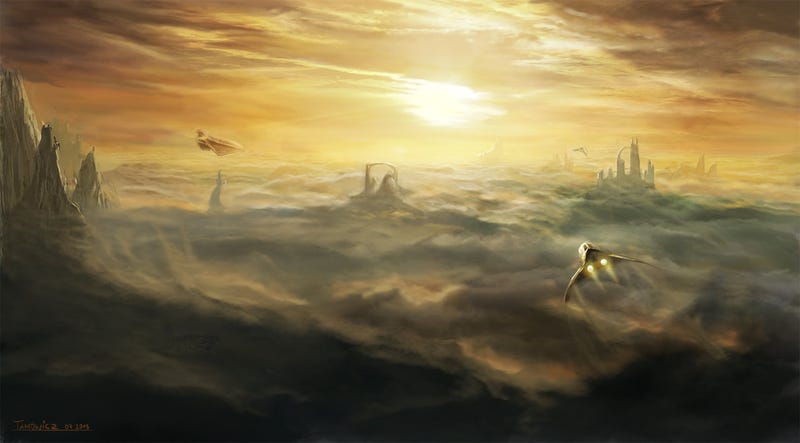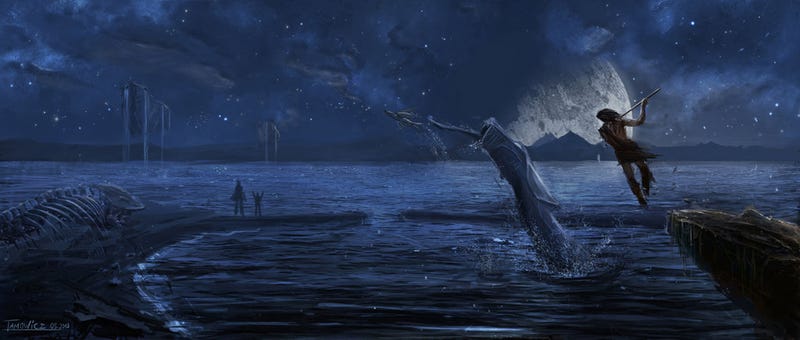
If a primary task of fiction is to explore the human experience—who we are and what we mean to each other—then the fantastic and unreal must surely be key elements in that exploration. But plenty of people still claim that fantasy and other genres are less “real” than purely mimetic fiction. And Kazuo Ishiguro has the best answer to those people.
http://www.amazon.com/The-Buried-Gia...
This is kind of surprising, since for a brief time last year, Ishiguro appeared to be one of the people who was pooh-poohing fantasy. When his Arthurian romance The Buried Giant came out, Ishiguro told the New York Times that he was worried that readers would be “prejudiced against the surface elements” in his tale of a sleeping dragon. “Are they going to say this is fantasy?” This remark drew the ire of fantasy legend Ursula K. Le Guin, and Ishiguro was quick to clarify that he was on the side of the fantasists , and that, in any case, “any stigma around sci-fi and fantasy is fading.”
(Read our review of The Buried Giant here

But now, with The Buried Giant coming out in paperback, Ishiguro has gone on the offensive. In a recent interview (quoted in the Independent) he made a powerful argument in favor of genre fiction. For example, he asks why crime fiction is taken less seriously than stories about relationships and marriage:
Crime is very important in our society. Why is it regarded as less serious than middle-class divorce? Why is middle-class divorce a subject for literary fiction, but [the] relationship between the drugs trade and politics is not?
And Ishiguro also argued that our whole educational system, and thus our cultural values, have been based on creating productive citizens who can help grow our economies. There’s been an emphasis on conformity and a certain type of seriousness, because that’s what our fast-growing economy demanded over the past few decades.
Said Ishiguro, “Education’s task was to get pupils to abandon the fantasy that comes naturally to children and prepare them for the demands of the workforce.”

But Ishiguro sees the rise of fantasy and science fiction themes among literary writers as one of many signs that this is changing. Even as writers like Neil Gaiman and David Mitchell are taken seriously and J.K. Rowling rules the world, tech companies are looking for people who can think imaginatively, who keep one foot in the world of fantasy. Geeks are in demand, in part because we think creatively. Europe is lagging behind the rest of the world economically, because “we need more fantasists.”
I can’t actually find the full text of Ishiguro’s interview, so I’m relying on the article in the Independent—whose author, Terence Blacker, actually disagrees with his views. In Blacker’s estimation, fantastic elements tend to crowd out nuance and human elements—even a beautifully observed book like Ishiguro’s own Never Let Me Go—and a story about a middle-class divorce really is the best way to explore “the small subtleties of human personality.” Added Blacker, “Life is more like bullshitty literary fiction than a fantasy.”
http://www.amazon.com/gp/product/B00...
I obviously agree with Ishiguro, even if his argument—as I understand it, based on the Independent write-up—seems a smidge oversimplified. It’s true that geeks are in the ascendant, but I’m not sure if that’s entirely due to our nonconformity or our steady diet of escapism. (A facility with science and math, in the age of computers and biotech, might also be a factor.) And dismising respectable literary fiction as all being about “middle-class divorce” is a bit of an old saw, that is clearly not true and includes some assumptions about the trivial concerns of a (largely female) readership for domestic stories.

But that said, Ishiguro’s larger point is clearly right—by now, anybody who’s not overly invested in preserving a certain type of subject-matter hierarchy has to have recognized that fantastical themes are increasingly central to our shared storytelling vocabulary. And our rapidly changing, technology-inflected world only really makes sense through a Black Mirror lens. Plus if literary fiction does want to claim a kind of genre-neutrality, or a sense that it is not a genre, but rather the absence of genre, then it has to be able to encompass all possible story ideas, real and unreal, right?
http://www.amazon.com/Hotel-Du-Lac-V...
As someone who devoured all of Anita Brookner’s small, tragic relationship stories and adores both Kingsley and Martin Amis, I’m all for the small, personal story. And I think that many writers, including Ishiguro, have proved at this point that a story can be both speculative and personal, including plenty of “small subtleties” of human behavior.

I also think that one of the things that written fiction does especially well, more than other forms of storytelling, is exploring the intersection of time and consciousness. Our minds are machines for turning moments into experiences—for processing things that we’ve done and seen, and transforming them into pieces of our identity. Few of us really understand how we do this, and how our minds, trapped in linear time, intersect with each other’s.
Any fiction, whether it takes place in a bungalow or on a starship, is in part exploring that clumsy collision of past and present, me and you, by depicting a series of events that add up to something.
And I think that the boundary between memory and fantasy is porous at best. Daydreams are often indistinguishable from real thoughts of the past or future, and you can’t really understand the whole of the human psyche without including the imaginary and the questionably real. And putting people into an extreme or bizarre situation is often one of the best ways to interrogate that stew of personhood and identity—as Ishiguro does, in fact, in the amnesia narrative of Buried Giant.
All images by Marek Tamowicz/Deviant Art
http://www.amazon.com/All-Birds-Char...
Charlie Jane Anders is the author of All The Birds in the Sky, which is available now. Here’s what people have been saying about it. Follow her on Twitter, and email her.